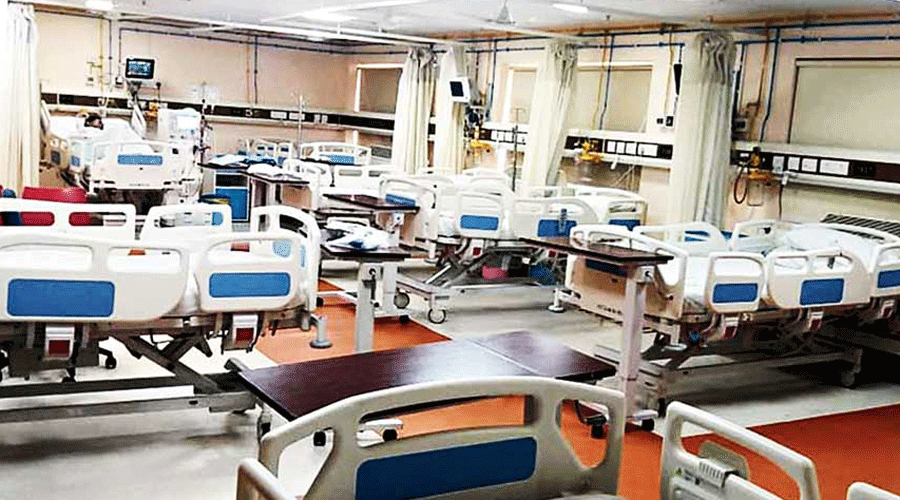An elderly man in his eighties was helplessly pacing outside the ICU of a corporate hospital seeking information about his wife, who had multiple comorbidities and was deteriorating rapidly. When he asked super-specialists like cardiologists, pulmonologists and diabetologists, he was told that she was improving from the diseases they were treating.
Unfortunately, she had advanced cirrhosis of the liver with multiple other problems and was going downhill. The man was actually looking for a physician who would take full responsibility and report the medical status to him on a regular basis. He demanded a complete overview and not an update on the various comorbidities separately.
However, in this age of super-specialisation, he was really struggling to find such a doctor. After completing MBBS, the trend to be a specialist and subsequently a super-specialist is on the rise. In West Bengal, close to 20,000 doctors have been registered in the last 10 years. If a significant number opt for super-specialisation, there will be a reduction in the number of general doctors. Super-specialists usually do not tread beyond their specialty or expertise.
Patients’ view
The views of the hospital administration and doctors are certainly important but the opinion of any elderly patient cannot be ignored. The views of any patient or relatives may not be evidence-based, but they need to be heard and the problems solved whenever possible. It is very common to have one major ailment and multiple comorbidities. From the doctor’s point of view, maximum efficiency and effort are desirable, whereas from the patient’s viewpoint, outcome is everything. Although views may differ, all are keen to see a cured patient, though it is not always feasible.
The common patient and their relatives usually desire:
⚫ To be regularly updated regarding the status and outcome. Lack of timely information may not be useful.
⚫ Prefer super-specialists as and when necessary as they are better trained than general doctors in their subjects.
⚫ Cost is a very important issue as involving multiple doctors may significantly increase the cost.
⚫ Financial anaemia is not an offence and best treatment should not be denied for that reason, although it is not always the case.
To evaluate a cancer patient, opinions of three super-specialists — medical, surgical and radiation oncology — may be necessary, which is today acceptable. In a corporate hospital in Kolkata, of about 160 consultants, around 20 per cent are super-specialists, which seems proportionate. There is of course a desire of recent medical graduates to be super-specialists. The social impact created by a doctor in the locality, city or state may not always be qualification-dependent and most of the patients are keen to take an opinion.
Geriatrics
Geriatric medicine deals with problems and diseases of old age, along with its treatment. It is very natural to be ill in old age. Some diseases like cancer increase with age. Senior citizens are assets and not liabilities to society.
The population of West Bengal exceeds nine crore and, according to a report, senior citizens should exceed one crore by 2025. It is very important to have logistics support as money alone cannot solve health liabilities. There are many elderly couples or widows who are financially capable but children reside elsewhere and have no reliable logistic support. Unfortunately, many suffer silently. Other than health issues, they also are subject to material exploitation, property problems, abandonment, and verbal, physical and emotional humiliation.
Geriatric medicine is a super-speciality which should be managed by specialists in the discipline taking care of the elderly population. At present, the physicians take care of the elderly as specialists are not easily available.
Medical College
Finally, it is up to a government hospital to take the lead in creating a geriatric medicine department. It is really unfortunate that most of the corporate hospitals have not given much importance to the creation of a geriatric department for elderly citizens with qualified doctors recognised by the NMC (National Medical Commission). Medical College, Bengal, is in the process of creating the first department in this regard.
⚫ It is due to start a course of MD (geriatrics) recognised by the NMC. Approval should be available shortly.
⚫ State clearance received.
⚫ Training of personnel is in progress.
⚫ In a few years, trained and recognized physicians will be available to treat elderly citizens in totality.
During the Covid period, elderly persons were not handed over to the geriatric physicians after recovery from the acute phase to take care of their multiple problems as they were not available.
Conclusion
It is time a proper geriatric department was started in all multi-speciality hospitals. Taking care of elderly people area-wise may be an option for corporate hospitals, which is also a social responsibility.
Taking full responsibility of a patient is a necessity which cannot be ignored.
A hospital facility providing evidence-based treatment at reasonable cost is necessary between the costly corporate hospitals and free government hospitals. It is certainly a requirement for all.
But is that feasible?
⚫ Author is secretary of the Bengal Oncology Foundation and clinical director of the department of surgical oncology, Peerless Hospital
